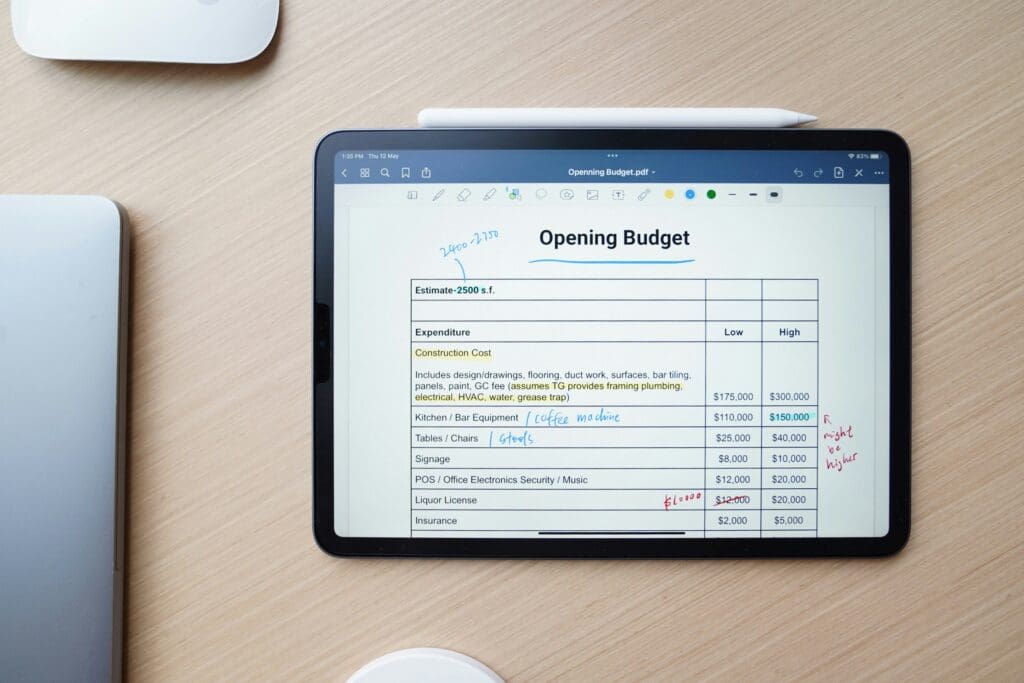Understanding College budgeting

As students prepare for college, gaining a clear understanding of the various expenses they will encounter is essential for effective budgeting. The financial obligations of attending college can often be overwhelming, encompassing a range of costs beyond just tuition. Familiarizing oneself with these expenses enables individuals to create a realistic budget and develop strategic saving plans.
One of the most significant expenses that students face is tuition. This cost can vary greatly depending on the institution, whether public or private, and the degree program chosen. Alongside tuition, students should expect to pay additional fees, which may cover administrative costs, student services, or course-specific materials. These fees can add a substantial amount to the overall cost of education, making it imperative for students to analyze their total tuition fees when budgeting.
Housing is another critical component of college expenses. Whether living on campus in a dormitory or seeking off-campus accommodations, rent and related housing costs can take up a large portion of a student’s budget. Students should account for utilities, internet, and any required deposits when estimating housing expenses. Additionally, food and daily living costs—including groceries, transportation, and personal items—should also be factored into the overall budget. These expenses can add up quickly and require careful consideration.
Finally, textbooks and course materials are often overlooked during the budgeting process. The cost of required books and supplies can vary significantly depending on the courses taken, and students should research options such as renting textbooks or purchasing used copies to save money. By thoroughly understanding the full spectrum of college expenses, students can avoid financial pitfalls and create an effective budgeting strategy that caters to their specific needs while pursuing their academic goals.
Creating a College Budget: Step-by-Step

Establishing a personalized college budget is instrumental in ensuring financial stability during your academic years. The first step in the budgeting process is assessing your income. Collect all potential sources of income, which may include financial aid, part-time job earnings, scholarships, and parental support. Document your monthly take-home amount to provide a clear starting point for your budget.
Next, you need to estimate your expenses. Categorize your spending into fixed and variable expenses. Fixed expenses may include tuition, rent, and insurance, which remain consistent month-to-month, while variable expenses encompass food, transportation, entertainment, and supplies. Keep a record of these costs to develop a realistic understanding of your financial landscape.
Once you have mapped out your income and expenses, it’s crucial to prioritize your needs versus wants. This practice allows you to differentiate between essential items, such as textbooks and groceries, and discretionary spending, like dining out or purchasing new clothes. Creating a hierarchy in your budget helps mitigate overspending and ensures you allocate funds primarily toward necessities. Consider utilizing budgeting apps or spreadsheets to facilitate this organization.
After establishing priorities, you can move towards allocating your funds accordingly. Ensure that your income covers your essential expenses. If a shortfall occurs, examine options to increase your income or reduce non-essential spending. Keeping track of your spending regularly will allow you to make adjustments and stay within your budget.
In conclusion, creating a personalized college budget requires diligent assessment of income and expenses, prioritization of needs versus wants, and continuous monitoring. By following these steps, you can establish a sustainable financial plan that supports your college experience without unnecessary stress.
Essential Items for Your Dorm Room

When preparing for college, equipping your dorm room with essential items is critical to ensuring both comfort and functionality. As a college student, the limited space and budget mean that careful consideration must be given to each purchase. To begin with, a good quality bedding set is paramount. It is advisable to invest in a durable mattress topper, pillows, and sheets that are not only comfortable but also fit twin XL beds commonly found in college dorms.
Additionally, students should consider study supplies that enhance productivity. A well-organized desk space is crucial, so items like a sturdy desk lamp, notebooks, pens, and highlighters should be prioritized. Furthermore, noise-canceling headphones can significantly improve focus during study sessions, especially in shared living environments where distractions are prevalent.
Kitchen essentials are also important, especially for students living in dorms with kitchen facilities. A microwave, portable coffee maker, and a set of basic utensils should be included in your shopping list. It can prove beneficial to have dishes and cookware that are space-efficient and suitable for preparing quick meals and snacks. Food storage containers are also recommended for keeping leftovers and snacks organized and fresh.
Don’t overlook personal care items, as maintaining hygiene and wellness is vital for a successful college experience. Basic toiletries like soap, shampoo, toothpaste, and a first-aid kit should all be readily available in your dorm to ensure that self-care is taken seriously. Also, having laundry supplies such as detergent and a hamper will assist in managing personal laundry, which can easily pile up.
By making these smart purchases and focusing on multifunctional items, students can create a comfortable and efficient living space that supports both their academic and personal lives.
Things to Avoid Buying for Your Dorm

When preparing to settle into a college dorm, it is imperative to distinguish between essential items and unnecessary purchases. Excessive spending on non-essential items can quickly deplete your budget, leaving you less prepared for the unavoidable expenses that arise during college life.
One common pitfall is investing in excessive decorations. While personalizing your space can be enjoyable, many students overdo it with posters, wall art, and decorative items that provide limited functionality. Instead, consider minimalistic decor that adds character without overwhelming your space. Not only does this help in freeing up valuable space, but it also allows for an easier transition when it comes time to move out. Remember, a few meaningful items can evoke comfort without cluttering your dorm.
Additionally, it is important to be aware of items that are often prohibited in dorms. Appliances such as hot plates, toaster ovens, or electric grills are frequently against dormitory policies due to safety regulations. Purchasing these items not only incurs unnecessary costs but also runs the risk of having them confiscated by the residence authorities. Always consult your college’s list of approved appliances to ensure compliance and avoid wasting money.
Another category to avoid is high-tech gadgets that offer minimal value to dorm life. While it may be tempting to invest in the latest technology, many gadgets cater primarily to entertainment rather than academic needs. For example, a high-end gaming console may serve as a fun distraction but could lead to regrettable financial choices when more pressing necessities arise.
Overall, it is crucial to assess your needs versus wants before making significant purchases for your dorm. By carefully selecting essential items and steering clear of unnecessary expenditures, you will facilitate a smoother transition into college life while keeping your budget intact.
Money-Saving Tips Before College Starts

Preparing for college often comes with a significant financial burden, but there are several effective money-saving strategies that students can implement before classes begin. One of the most substantial savings opportunities lies in purchasing used textbooks. Given that textbooks can be incredibly costly, opting for second-hand editions can lead to significant savings. Websites such as Chegg, Amazon, and AbeBooks often offer a variety of used texts at a fraction of the retail price. In addition to searching for used books, students should consider renting textbooks, which can further reduce costs.
Another practical approach is to take full advantage of back-to-school sales. Many retailers begin offering discounts on essential college supplies as the school year approaches. This is the perfect opportunity to stock up on necessary items such as stationery, dorm room decor, and kitchen equipment. By planning a shopping list and keeping an eye out for sales, students can ensure they get quality products at a lower price.
In addition to these specific strategies, creating a savings plan is critical for financial preparation. Students should evaluate their expected expenses and income to formulate a budget before starting college. This budget should account for tuition fees, housing, food, and miscellaneous expenses. By forecasting costs and setting savings goals, students can develop a clearer picture of their financial landscape. Setting aside a small amount of money each month can gradually build a financial cushion that proves invaluable once college begins.
Incorporating these money-saving tips can significantly ease the transition into college life. By being proactive, students can reduce expenses and ensure they are financially prepared for the new academic journey ahead.
Budgeting Strategies While in College

Effectively managing finances while attending college is crucial for maintaining a stable and stress-free academic life. One of the most impactful budgeting strategies involves utilizing budgeting apps, which can streamline the monitoring of expenditures. These applications allow students to categorize expenses, set spending limits, and keep track of their financial goals. By regularly inputting transactions, students gain insight into their spending habits, enabling them to make informed decisions about their finances.
In addition to using technology, it is essential for college students to adopt the practice of tracking their expenses diligently. This can be done through simple spreadsheets or financial journals. Students should consider recording all purchases, no matter how small, to gain clarity on their financial situation. By understanding where money is going, students can identify areas in which they may be overspending and adjust their habits accordingly. Establishing a realistic budget based on necessary expenses such as tuition, books, and daily living costs will help students to avoid financial pitfalls.
Learning to live within a predetermined budget is vital for fostering responsible financial behavior. Students should consider allocating a specific amount for discretionary spending each month, ensuring that they do not exceed this limit. This could involve making conscious decisions about dining out, entertainment, or shopping for non-essential items. Moreover, finding part-time job opportunities can be an effective way to supplement income, providing students not only with additional funds but also with valuable work experience. Jobs on or near campus, such as tutoring, retail positions, or internships, can often be flexible enough to accommodate class schedules.
Ultimately, the combination of responsible spending habits, the use of budgeting tools, and possible employment can greatly enhance a student’s financial stability during their college years. By implementing these strategies, students set themselves up for success, ensuring that they can focus on their academic pursuits without the burden of financial stress.
Managing Finances After College

As graduates transition from the academic environment to the professional world, managing finances becomes a crucial aspect of their newfound independence. One of the first financial responsibilities many will face is student loan repayment. Understanding the terms of these loans, such as interest rates and repayment schedules, is essential. Establishing a repayment plan that fits within one’s income can alleviate the stress associated with these payments. Graduates should consider various repayment options, including income-driven repayment plans, which can make monthly payments more manageable based on income levels.
In addition to managing student loans, budgeting for living expenses in the post-college phase is critical. Graduates often move to areas with different living costs, and it’s vital to create a realistic budget that covers necessary expenses such as housing, utilities, groceries, transportation, and insurance. Tracking spending habits in these categories will help identify areas where adjustments can be made, ultimately enabling graduates to allocate their funds more effectively. Utilizing budgeting tools or apps can streamline this process, ensuring that financial goals are not only set but met.
Building a savings plan is equally important as graduates start their careers. Establishing an emergency fund should be a priority, as unexpected expenses can arise without warning. A common guideline suggests saving three to six months’ worth of living expenses. Furthermore, setting aside money in a dedicated savings account for specific goals, such as purchasing a car or saving for a home, can provide a sense of financial security. Early investment in retirement accounts is beneficial as well, allowing graduates to take advantage of compound interest. Each of these strategies contributes to creating a solid financial foundation that can support long-term goals and aspirations.
Resources for Budgeting and Financial Planning

Effective budgeting is essential for college students aiming to manage their finances responsibly and efficiently. Numerous resources exist to assist students in developing strong budgeting habits. One of the most effective tools available are budgeting apps, which help individuals track their income and expenses in a user-friendly format. Popular apps such as Mint, You Need a Budget (YNAB), and PocketGuard allow users to categorize their spending, set financial goals, and generate reports that provide insights into their financial behavior. These applications not only simplify the budgeting process but also offer reminders to ensure timely bill payments, which can further prevent unnecessary fees.
In addition to mobile applications, students may also benefit from attending financial workshops offered by their institution or local community centers. These workshops typically cover topics such as developing a budget, understanding credit scores, and managing student loans. Participating in these live sessions provides students with the opportunity to interact with financial experts who can provide tailored advice and answer queries related to their personal finance challenges.
As students navigate their budgeting journey, online resources play a crucial role in providing educational content. Websites like NerdWallet, The Balance, and Investopedia offer articles, guides, and tools designed to enhance financial literacy. These platforms include budget calculators that aid in determining potential savings and expenses, making it easier for students to visualize their financial landscape.
Furthermore, many colleges and universities have a financial aid office equipped with a variety of resources to aid students in financial planning. These offices can provide tailored advice, workshops, and informational materials to ensure students stay on track financially throughout their academic journey. Utilizing these resources can empower students to take charge of their finances effectively.
Conclusion: Taking Control of Your College Finances

Budgeting for college is not merely a task; it is a fundamental skill that can shape a student’s financial future. As one embarks on their college journey, understanding the importance of financial awareness becomes crucial. With rising tuition costs and living expenses, a well-structured budget ensures that students can navigate their education without incurring an overwhelming burden of debt.
Key takeaways from this guide highlight the necessity of creating a realistic budget that reflects both income sources and expenditures. Identifying dorm essentials and prioritizing purchases based on need versus want allows students to allocate their resources efficiently. Furthermore, it is essential to consider various options for saving money, such as utilizing student discounts, exploring affordable dining alternatives, and taking advantage of second-hand goods, which can significantly lower costs.
Students should approach budgeting with an open mind, recognizing that financial flexibility is a hallmark of a successful college experience. Keeping track of spending and regularly assessing one’s budget can help ensure that students stay within their means. Additionally, using budgeting tools and apps can aid in developing better financial habits, promoting a disciplined approach to managing funds.
Ultimately, making informed financial choices will empower students to enjoy their college experience while preparing them for future financial obligations. By taking control of their college finances, students not only enhance their academic journey but also lay the groundwork for long-term financial stability. A proactive stance in budgeting can lead to greater opportunities and less stress throughout college and beyond, solidifying the path toward a successful and fulfilling future.
